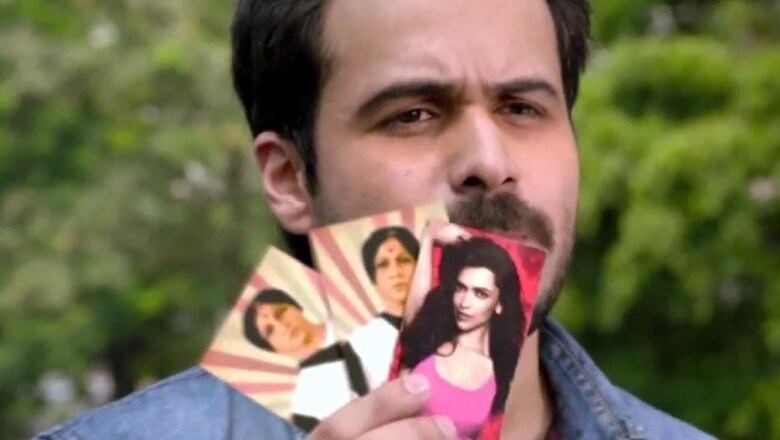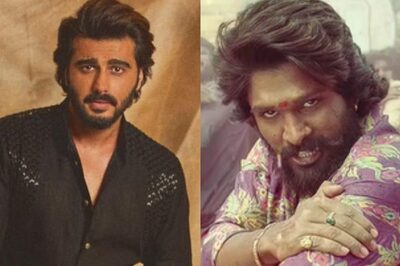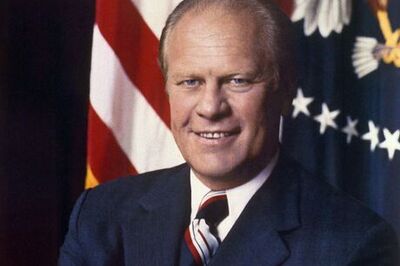
views
New Delhi: He walks with a swagger, he often breaks into a jig. Dressed in colourful gaudy clothes, you often find this lout in Bollywood films. He might be selling tickets for "black" outside popular film theatres, or riding the auto-rickshaw on the roads of "Bambai". He might break somebody's bones if he takes on a "supari", but he definitely has a heart of gold.
Bollywood has always had a romantic, poignant relationship with the archetypical goon. He is often portrayed as a misunderstood man-boy, who loves to break the rules. His vocabulary consists of a lot of "aa-rela hai, jaa-rela hai" words -- but he eventually does the right thing. In the end. Most of the time. Maybe.
With Emraan Hashmi's new film 'Raja Natwarlal' set to hit the theatres next week, we were tempted to look at the phenomenon of why cinema tends to glorify these loveable law-breakers.
Ram Gopal Varma's 1995 hit 'Rangeela' featured Aamir Khan in the role of a street-toughened small-time thug Munna. He has a thing for the aspiring actress Mili (Urmila Matondkar) who has totally friendzoned him. Long story short, the film finally ends on a positive note, with Mili shunning the advances of a famous Bollywood star to be with Munna. Roll credits.

While there's a case to be made for the fact that Munna might love Mili more than any self-centred actor, don't you think it kind of sends out a wrong message to the young 'uns? It doesn't matter if you are not rich, successful or have a rap-sheet the size of a nau-wari sari. Your chances of getting a hot actress are just as good.
Another recent example that comes to our mind is from the recent blockbuster 'Ek Villain'. The protagonist, Guru (Siddarth Malhotra), is a cold-blooded murderer raised by an equally ruthless pony-tailed gangster (Remo Fernandes). Guru sets a man on fire within the first 30 minutes of the film and walks away as the dead man's mother is screeching. But his sins are sort of wiped clean when he decides to help out a good-looking cancer patient with her bucket list. Oh, and he falls in love with her.

Be it 'Bunty aur Babli', 'Gangs of Wasseypur', or 'Highway', it looks like the as long as some sort of penance or a love affair is involved, most of us are willing to forgive their crimes. Is this a trend that glorifies the crime world? Is it considered "cool" to be a gun-toting felon? If you follow the 'Ocean's' or the 'Dhoom' series, it certainly looks that way.
According to a media report, ever since the 1999 release of the first Matrix movie, there have been several cases of violent crimes in the US and attorneys have used 'The Matrix defense', on behalf of their clients, saying that the accused believed they were in an 'alternate reality'.
To be fair to the writers and filmmakers, they are only portraying on the larger screen what they see or hear in real life. The on-screen wife-beater might be inspired from an abusive relative, the pickpocket might be an homage to the neighbourhood garbage collector, or the ruthless murderer might be inspired from an infamous character in history.
While one cannot help where one is born and under what circumstances one is raised, but the filmmakers can certainly try to portray a more wholesome picture of these problems. Everybody deserves a second chance; everybody deserves to fall in love. But not everybody can get away with stalking a good-looking woman and insist that "Ladki ki na mein bhi haan hai" (there's always a 'yes' in a girl's 'no').

















Comments
0 comment